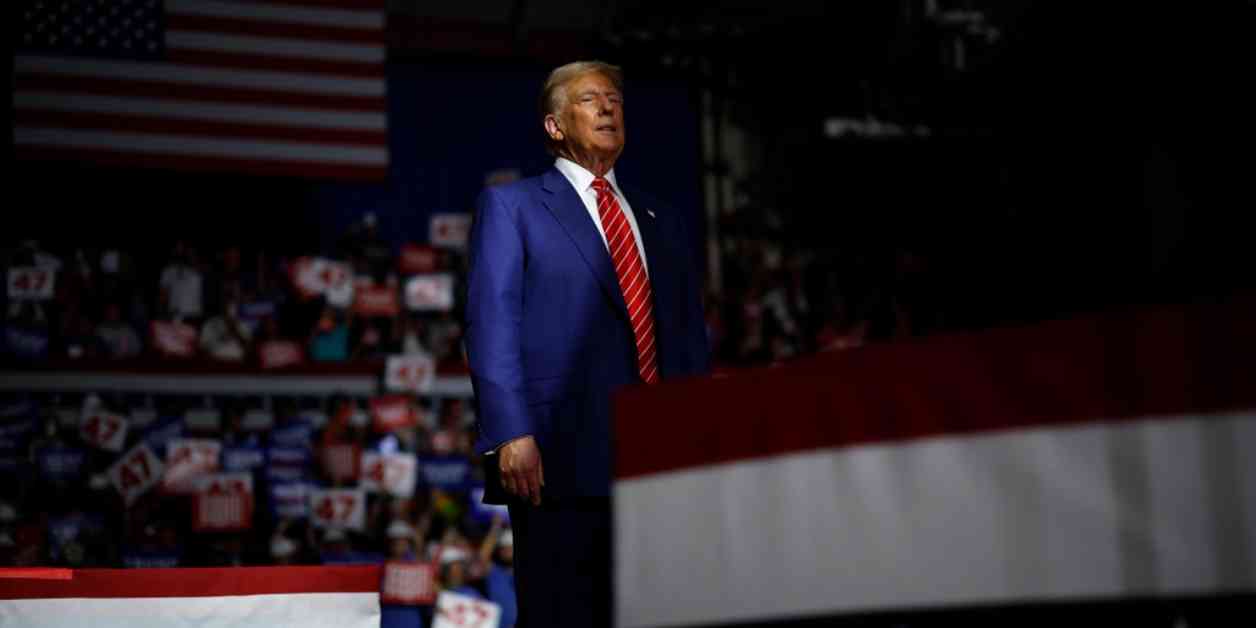Former President Donald Trump has been making increasingly explicit threats to prosecute political foes and individuals he deems corrupt if he wins in November. Legal experts have raised concerns about the implications of such actions, highlighting the potential obstacles Trump may face in his pursuit of these prosecutions.
Trump’s Plans to Use the Department of Justice
Over the past two weeks, Trump has openly discussed his intentions to use the Department of Justice to go after individuals he believes are corrupt. While judges, prosecutors, and juries have the power to decline trying or convicting people if there is insufficient evidence of criminal activity, legal experts have pointed out that recent Supreme Court decisions may give the president more authority to order indictments without facing legal repercussions.
New Heights of Explicit Threats
Trump’s threats have reached new heights in recent weeks, with him explicitly naming individuals such as Mark Zuckerberg and making baseless accusations against them. He has also vowed to crack down on corruption within health agencies and has threatened to prosecute individuals involved in election fraud. These threats have raised concerns about the potential misuse of presidential power and the erosion of the Justice Department’s independence.
Challenges to Trump’s Prosecutorial Plans
Despite Trump’s bold statements, legal experts have pointed out several challenges he may encounter in carrying out his prosecutorial plans. The Justice Department has traditionally maintained independence from the president to prevent partisan influence over criminal investigations. Any attempts by the White House to direct specific prosecutions have historically been viewed as scandalous, regardless of the political party in power.
Trump’s Legal Allies and Their Influence
Trump’s legal allies, such as Jeffrey Clark and Mike Davis, have advocated for greater presidential authority over the Justice Department’s decision-making processes. Clark has argued that the attorney general should not be independent and that all executive power ultimately rests with the president. Davis has promoted the idea of relying on an acting attorney general to carry out Trump’s wishes efficiently, suggesting a more aggressive approach to prosecutions in a potential second term.
The Potential Impact on the Justice System
The prospect of a second Trump administration wielding greater control over the Justice Department has raised concerns about the integrity of the legal system. Critics worry that such actions could lead to the targeting of political opponents and the erosion of prosecutorial ethics. The idea of replacing career officials with political appointees who align with Trump’s agenda has sparked fears of further politicization of the justice system.
Challenges Faced by Career Officials
Career FBI and DOJ officials may find themselves in a difficult position if pressured to carry out politically motivated investigations. The Justice Manual sets guidelines for prosecutors and agents to prevent unwarranted investigations, but the line between legitimate prosecution and political interference can be blurry. Partisan officials may exert pressure on civil servants to follow Trump’s orders, potentially leading to unjust prosecutions and a lack of accountability within the Justice Department.
The Role of Fear in Trump’s Tactics
Legal experts have pointed out that Trump’s most potent weapon may be fear. By threatening high-profile prosecutions, he can instill a sense of terror in those who oppose him, regardless of the validity of the charges. While wealthy individuals like Zuckerberg may have the resources to fight wrongful prosecutions, average citizens may succumb to fear and give in to Trump’s demands. This strategy of using fear to control opponents has raised alarms about the erosion of democratic norms and the rule of law.
The Future of the Justice Department
As the possibility of a second Trump administration looms, questions arise about the future of the Justice Department. Calls to dismantle alleged corruption within the department and replace career officials with political appointees signal a potential shift towards a more partisan and politically driven justice system. Concerns about the erosion of public trust and the politicization of law enforcement underscore the need for safeguarding the independence and integrity of the Justice Department.
Conclusion
The escalating threats and rhetoric from former President Trump regarding potential prosecutions of political foes and individuals he deems corrupt have raised alarms about the erosion of democratic norms and the independence of the Justice Department. Legal experts caution against the politicization of law enforcement and the misuse of presidential power for personal or political gain. As the country navigates through a turbulent political landscape, the integrity of the justice system and the rule of law must be upheld to ensure a fair and just society for all.



























